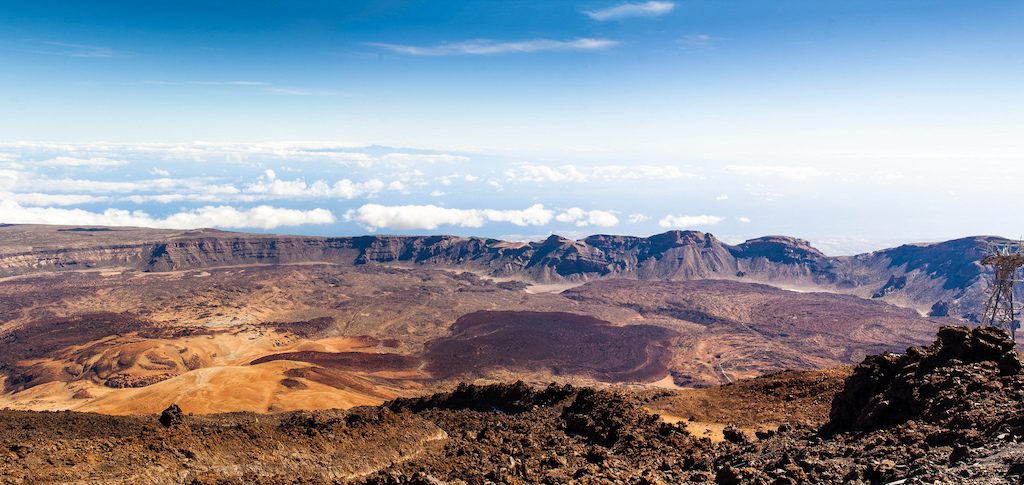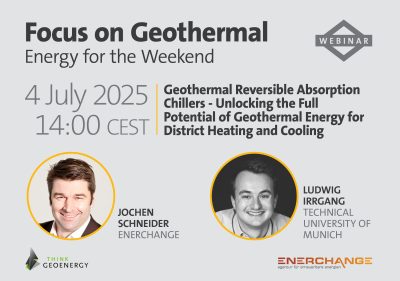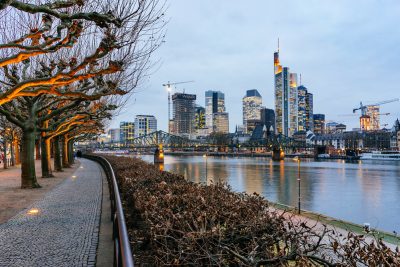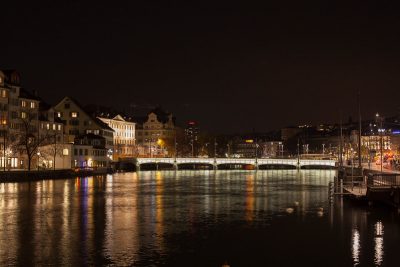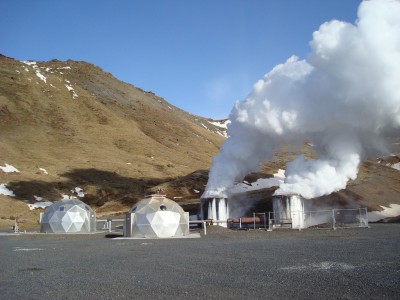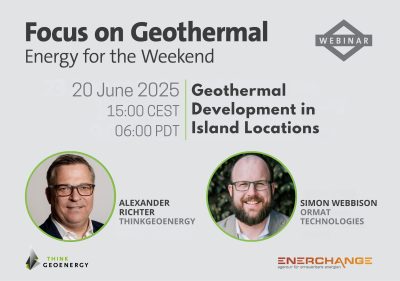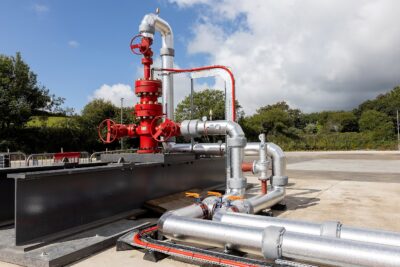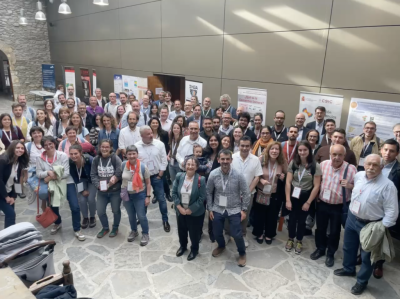Digital Workshop – Geothermal energy utilization on volcanic islands, Oct. 1, 2020
Volcanic islands like the Canary, Azores, Aeolian or in the Aegean Sea are attractive for tourists, which in turn put stress on the islands’ energy supply. How geothermal energy can be a source of energy for those islands is theme of this upcoming online event.
A Digital Workshop on the “Possibilities and limitations of geothermal energy use for heating and production of electricity [on] volcanic islands” has been announced by Geothermal DHC.
- Date and location of the workshop: 1 st of October 2020, 9:30 am – 2:00 pm, digital event
Geothermal energy use on volcanic islands
Due to unique landscapes, volcanic islands like the Canary, Azores, Aeolian or in the Aegean Sea are very attractive for tourists, which in turn put stress on the islands’ energy supply. In the context of climate change mitigation as well as for economic reasons, measures need to be taken to substitute the import of fossil fuels for energy production by on-site resources, which are able to provide base load supply. Active or post-active volcanic islands offer elevated geothermal heat flux, which could be used for combined heat and power production at base load level. However, especially in arid or semiarid volcanic islands, major constraints for using geothermal energy are given by lack of groundwater, which acts as a heat carrier fluid.
About the workshop
The workshops, organized by the COST Action CA18219 “Research network for including geothermal technologies into decarbonized heating and cooling grids – Geothermal-DHC“ will focus on the inclusion of geothermal energy in small volcanic islands used for tourism in Europe and abroad. The workshop focuses on options and limitations of geothermal energy use in volcanic islands for base load heat and electricity supply by CHP facilities.
The workshop aims at exchanging experiences linked to the exploration, evaluation and application of geothermal energy in volcanic environments. The interactive part of the workshop focuses on future options and limitations of applying geothermal energy on islands.
Attention is paid to the following main questions:
- What are the main techno-economic barriers for the development of geothermal energy in volcanic islands e.g. exploration drawbacks, lack of groundwater, misfits in energy demand and production profiles or high production costs)?
- Are there non techno-economic barriers like social acceptance and risks, which need to be considered for applying geothermal energy on volcanic islands?
- How can these barriers be removed and which technological concepts may allow including geothermal energy in energy supply?
Further details on the workshop can be found in this event announcement (pdf).
How to submit an abstract and register to the workshop
A call for contributions is now open. The abstract should not have more than 300 words and must be written in English language. Please submit your abstract via the following registration link before 15th of September 2020. Attending the workshop is free of charge. Please register to this workshop at the following link before 25th of September 2020 in order to receive the access details to the workshop. Please contact Mrs. Vasiliki GEMENI gemeni@certh.gr for further information on this digital event.
About Geothermal-DHC
The COST Action CA18219 Geothermal-DHC addresses the inclusion of geothermal energy in decarbonized heating and cooling grids across Europe. The network follows a technologically bottomup approach involving the whole spectrum of geothermal and envisaging the whole process chain from planning to operation and monitoring. Our network addresses both, refitted existing heating and cooling networks as well as new grids. Geothermal may act as a heating source, sink or storage and may be combined with other renewables (e.g. solar thermal) and waste heat in multivalent heating and cooling grids. Geothermal-DHC aims to demonstrate that geothermal energy has the potential to significantly enhance the share of renewable energy sources in heating and cooling grids to
- 30% in 2030
- 50% in 2050 in Europe.
Geothermal-DHC connects researchers from various disciplines (e.g. geosciences, energy conversion and social science) with stakeholders (e.g. energy suppliers, municipalities and energy planners), who are interested to lower the CO2 footprint of heating and cooling in their region. Currently, the network is covering participants from more than 30 European countries as well as observers from outside of Europe. The COST network aims at developing a competence and research platform for the use of geothermal energy in European heating and cooling grids.
